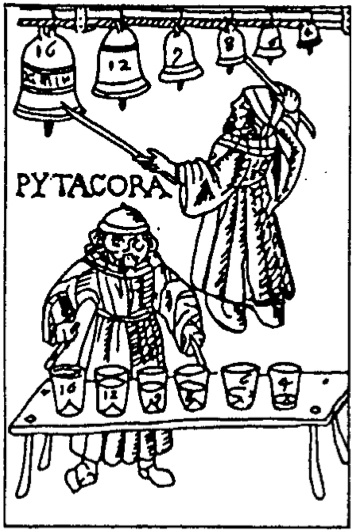Lecture series, Université Populaire, march 2009, Bourges
The knowledge of our world around us comes from multiple approaches.
One of them - sound - has a special place in history.
Since Pythagoras and his music of the spheres, through Boethius and his "musica mundana", the alchemist Mayer with "Atalanta Fugiens," the astronomer Kepler who makes planets sing, to contemporary scientists in fields as diverse as molecular biology, earth sciences, astronomy and many others, "men of knowledge" use sound to understand and interpret reality better.
At the same time, composers are looking outward to get inspiration or directly use data from the world around us - Guido d'Arezzo has melodies calculated, Dufay transposes the church proportions in a motet, Mozart uses probability to create automatic compositions, Xenakis invents stochastic music...
We are going to study the evolution of music based on the evolution of the knowledge of the world from antiquity to present time, before finally studying "sonification" which studies the transformation of data into sound parameters.



